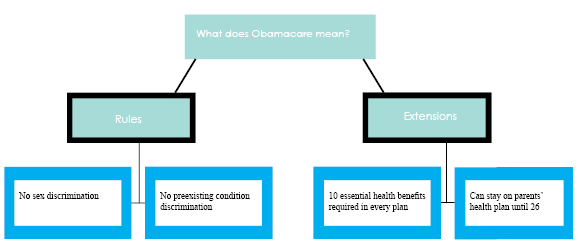In this video, comedian Jimmy Kimmel asked pedestrians whether they preferred Obamacare or the Affordable Care Act. They are two names for the same piece of legislation. While this segment may appear slightly disingenuous — those informed were probably replaced by the ignorant— it does serve to satirize common apathy towards the actual wording of the law, as multitudes of Americans suffer from the biased viewpoints propagated by the press. As students, we should take an important step to reverse this dangerous trend by attempting to understand the effects of this contentious Obamacare.
Obamacare, officially known as the Patient Protection and Affordable Care Act (PPACA), constitutes the largest overhaul of the United States healthcare system since Medicare and Medicaid rolled off Lyndon Johnson’s desk in 1965, according to Reuters. We are witnessing a definitive event — a monumental shift in the way the world’s wealthiest country nurses its citizens.
In terms of reforms which mean the most to our demographic, we will be adults in a few years; consequently, the inclusion of minors onto parents’ plans has special significance for us. With many of us eventually having to take out massive student loans to cover our educational expenses, 600 to 1200 dollars a month premiums represent a significant portion of college students’ income. Eschewing health insurance altogether is an unrealistic option, with some procedures such as joint ones running upwards of 50,000 dollars. Imagine the effect such a bill would have on students’ credit scores, especially considering the median income for United States individual

isn’t even $27,000. In addition, the insurance exchanges set up by Obamacare pose an interesting future for the United States health care system as a whole. The fact that insurers now have to package 10 essential health benefits along with their plans, according to Forbes, will raise premiums for some who previously opted for bare-bones plans, who will now be forced to buy into a more expensive yet expansive policy. What does this mean for us? Future health insurance will be required to cover a certain bottom line. However, rising costs must be endured by the taxpayer — we the people, who will start to subsidize several of these plans once we start filing our taxes, will inevitably have to foot a growing bill — and the individual buyer, ourselves included, who could expect higher premiums. Everybody could eventually have insurance, but the costs of coverage could end up reducing the advantage of insurance in the first place.
The current United States healthcare system is unaffordable and demands reform. With the Affordable Care Act being a reality now — upheld by the Supreme Court and in the face of weakening political opposition — students should take care as to note the long term effects of this law, because it’s definitely here to stay.









